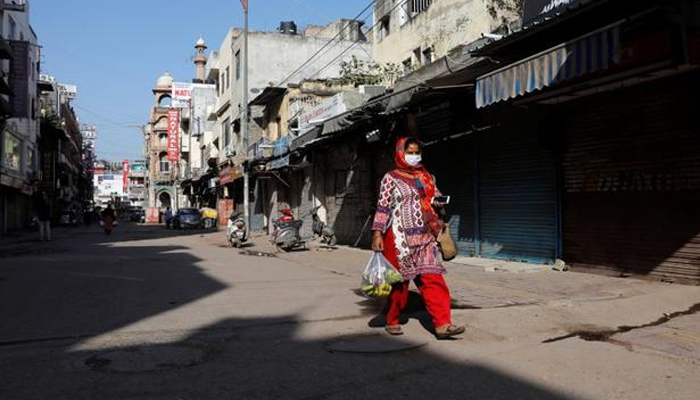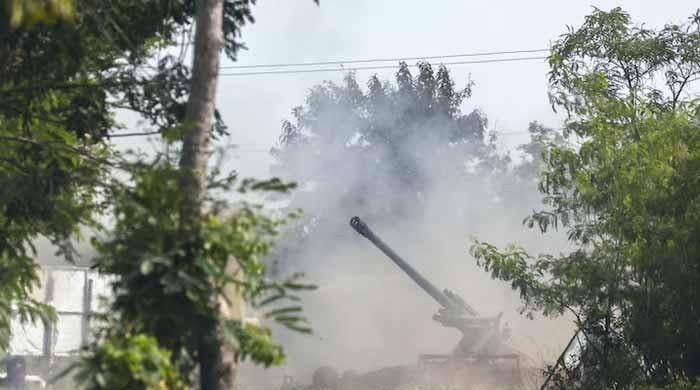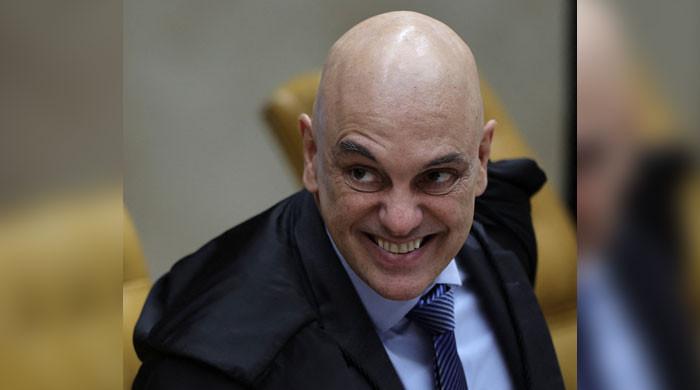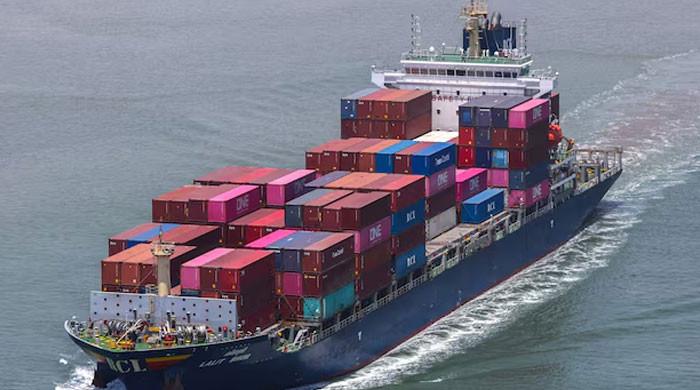India economy in 'dire' straits as coronavirus lockdown slashes incomes drastically: report
Study notes a 'sharp and broad negative impact on household income' in India due to coronavirus pandemic
June 10, 2020

The Indian economy is in "dire" straits as a lockdown to curb the spread of the deadly coronavirus has led to a whopping majority of households experiencing slashed incomes, a report has indicated.
The report by the University of Pennsylvania's Wharton School published Tuesday stressed on how experts are questioning the phased reopening of select sectors in India as the number of coronavirus cases and deaths continues to rise.
The country — which, according to the Johns Hopkins University’s dashboard, was seventh on the list of countries with the most infections, as of June 8 — recently extended its lockdown through June 30 — but only in the containment zones.
The Indian government has so far unveiled three stimulus programmes worth in total at almost INR21 trillion, including a liquidity package worth INR7.2 trillion from the country's central bank, announced before the coronavirus.
The report noted that "India’s GDP grew the slowest in 11 years at 3.1% [in the latest quarter] and is expected to contract by 6.8% in the current fiscal year".
"The economic distress in India caused by the lockdown is dire. Nearly 84% of Indian households are seeing decreases in income since the lockdown began, according to a recent study by experts at the University of Pennsylvania, University of Chicago and the Mumbai-based Centre for Monitoring the Indian Economy (CMIE)," the Wharton School's report stated.
The study the report cited also found a "'sharp and broad negative impact on household income' as the pandemic diminished their staying capacity".
"Nearly a third of all households will not be able to survive beyond a week without additional assistance, it stated. That harsh statistic finds corroboration in the unemployment rate, which had crossed 27% in early May, up nearly four-fold from levels in January-February, according to CMIE data. The jobless rate has since dropped to less than 24%."
One of the study's authors, Wharton professor of business economics and public policy Heather Schofield, said: "Direct and immediate transfers of food and cash are very high priority.
"These transfers should be broad based and reach most of the income distribution, as it is clear that nearly everyone but the wealthiest have seen their incomes fall and are in need of additional resources to survive.”
According to the study cited, households at the lower end were those that had average monthly per-capita earnings lower than INR3,800, whereas those on the higher end had INR12,374-100,000. Therefore, the families in middle-income groups were "hurt disproportionately" due to their incomes being hit the most by the coronavirus lockdown.
Rural households, too, were disproportionately impacted as 88% of them experienced a slash in incomes as opposed to 75% in urban ones — mostly due to the fact that the latter can work from home.
Income hits was reported to be different geographically, with the "five worst-affected states are Tripura, Chhattisgarh, Bihar, Jharkhand, and Haryana".
The study’s authors further wrote that "a very large share of Indian households state that they will be unable to continue — even over relatively short periods — without additional assistance".
"Across India, 34% of households will not be able to survive for more than one week without additional assistance, the survey found. Only 30% of households are able to survive one month or more without additional assistance."
On the other hand, 14% of the households were already reported to be out of funds and faced a risk of severe deprivation, the report warned. It added: “Rapid distribution of in-kind or cash transfers is needed to prevent a sharp increase in malnutrition and severe deprivation."
However, interestingly, rural households that earn less than median income "have relatively more resilience ... as 54% of them have sufficient resources for the same period of time". It listed the five states with the highest and most urgent need for funds as Jharkhand, Bihar, Odisha, Tamil Nadu, and Kerala.
The Wharton School report cited The Economist's article explaining a KPMG note, writing: "Estimates of the actual new fiscal commitment by Mr. Modi’s government range from a puny 0.7% of GDP to 1.3%, a far cry from the touted 10%."
Schofield, the study's co-author, said while the stimulus packages were commendable, "the devil is in the details". She pointed out that a major barrier for the relief funds was the fact that almost 85% of India's labour force was informal.
The Wharton School said she had "called for the government to focus on preventing malnutrition, and continuing to provide maternal and child health services, such as vaccinations".
Schofield further highlighted that a huge concern during the coronavirus lockdown was domestic violence and worsening mental health as countries such as India already had "very high levels of undiagnosed depression".
"There has been an alarming spike in domestic violence. These trends are likely to be exacerbated in a context with fewer resources and more crowding," she wrote.
Since before the pandemic, growth under the Prime Minister Narendra Modi-led government "was already slowing" and the lockdown would intensify it, she said, adding that only if government aid was to continue could a "full-blown recession" be avoided.
Lastly, it was underscored that delayed transportation arrangements for the migrants — tens of thousands of them and most of whom were daily-wagers engaged in construction projects or working at retail shops or restaurants — meant they had "no work, and they cannot afford to continue paying for rent and utilities in their urban shanties, or for food, health care or education for their children".
Many died on their way back to native villages in other states due to "exhaustion, hunger or disease", it added, noting that the Bharatiya Janata Party (BJP) government was "caught unawares by the sheer size of the migrant exodus" and arranged transport after a huge and shameful delay.









